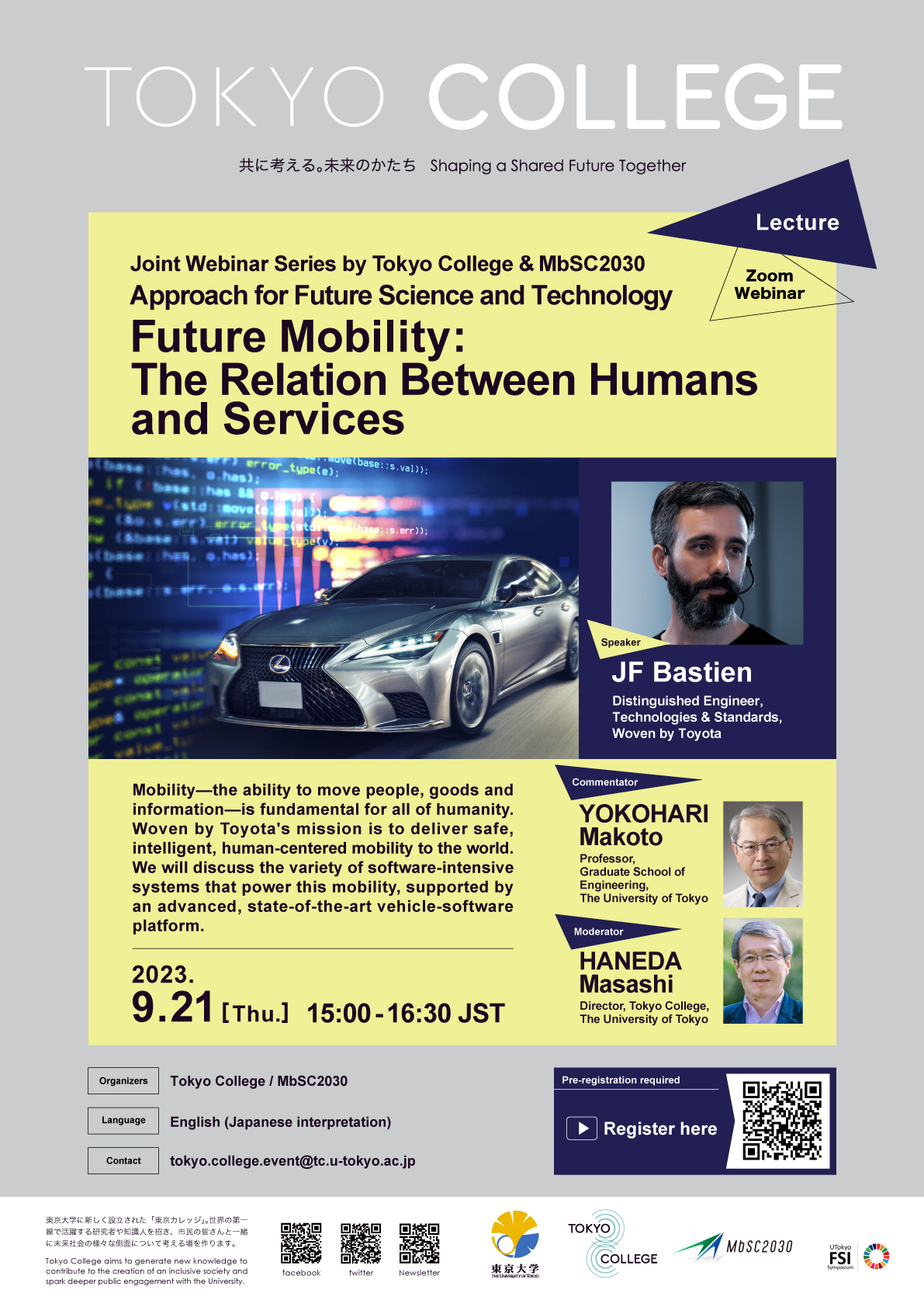Joint Webinar Series by Tokyo College&MbSC2030 Approach for Future Science and Technology “Future Mobility: The Relation Between Humans and Services”

| Date(s) | Thursday, 21 September 2023, 15:00 - 16:30 JST |
|---|---|
| Venue |
Zoom webinar (register from here) |
| Registration | Pre-registration required |
| Language | English (Japanese interpretation) |
| Abstract |
Mobility—the ability to move people, goods and information—is fundamental for all of humanity. Woven by Toyota’s purpose is to deliver safe, intelligent, human-centered mobility to the world. We will discuss the variety of software-intensive systems that power this mobility, supported by an advanced, state-of-the-art vehicle software-platform. |
| Program |
Lecture JF Bastien (Distinguished Engineer, Technologies & Standards, Woven by Toyota) Comment YOKOHARI Makoto (Professor, Graduate School of Engineering, The University of Tokyo) Moderator HANEDA Masashi (Director, Tokyo College, The University of Tokyo) |
| Speaker Profile |
JF Bastien serves as Distinguished Engineer of Technologies & Standards at Woven by Toyota. In this capacity, he spearheads the development of a vehicle software platform, contributing to Toyota’s ongoing transformation to mobility company through software. Additionally, JF is seconded to Toyota. Furthermore, he actively contributes to a variety of open source projects, programming language, and software standardization groups. Before joining Woven by Toyota, JF created software platforms for software-intensive systems. His professional experience encompasses mobile computing platforms, web browsers, computer systems-on-a-chip, and full-flight simulators. |
| Organized by | Joint Webinar:Tokyo College, The University of Tokyo and MbSC 2030 |
| Contact | tokyo.college.event@tc.u-tokyo.ac.jp |
















